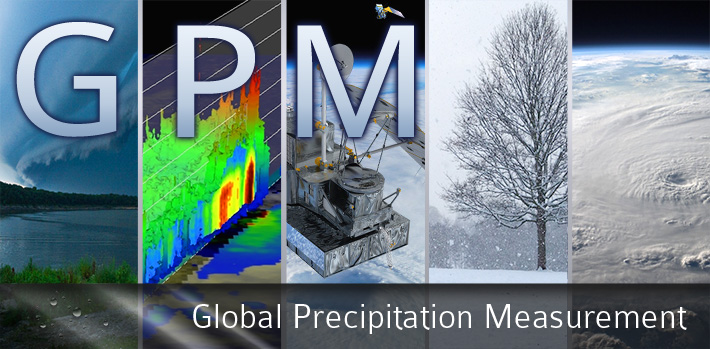NMQ: National Mosaic and Multi-Sensor QPE
Comparisons of rainrates from GMI and MRMS (now called Q3)
GMI surface rainrates
GMI surface rainrates are generated on a pixel by pixel basis from radiometer brightness temperature
data using the Goddard Profiling algorithm GPROF2014. GMI data available for us are from 4 Mar 2014.
This comparison utilizes the V3 GMI data before 1 Jan 2016, V04A from 1 Jan 2016.
Comparisons with MRMS (Q3)
The comparisons are conducted over the CONUS during GPM overpasses from 4 Mar 4 2014.
Both GMI and MRMS instantaneous rainrates are averaged to 0.5o by 0.5o
(approximately 50km x 50km) boxes.
Rainrates less than 0.2 mm/h from both GMI and MRMS(Q3) are not included as the GMI gets a lot of false light rain.
Only liquid rainrates with RQI>=0.9 are used the the comparisons.
Different rainrate thresholds are used in the following comparison plots as many researches show the satellite
rain bias is a function of rain intensities.
- Scatter plot for different rainrate categories
- Density plot for different rainrate categories
- Mean difference, relative error, RMSE, and correlation for different rainrate categories
- PDF by rain occurrence and volume for different rainrate categories
- Rain map
The rain map for GMI surfacePrecipitation (SP), mostLikelyPrecipitation (MP) or MRMS
is based on its native spatial resolution (GMI: ~5km; MRMS: 0.01o).
GMI rainrates less than 0.2 mm/h are not plotted.
- Error Map
The error maps (mean relative error and mean absolute error for GMI surfacePrecipitation
relative to MRMS rainrates), as well as the sample size, are based on matched data
at 0.5o resolution from Mar 2014 to Mar 2015 after applying following QCs/filters.
Rainrates less than 0.2 mm/h are excluded.
- QC0 no QC
- QC1 valid data: RQI>=0.9 and liquid precipitation only, and
area coverage: >=75% of 0.01o grids with "valid data" in each 0.5 o box.
|



